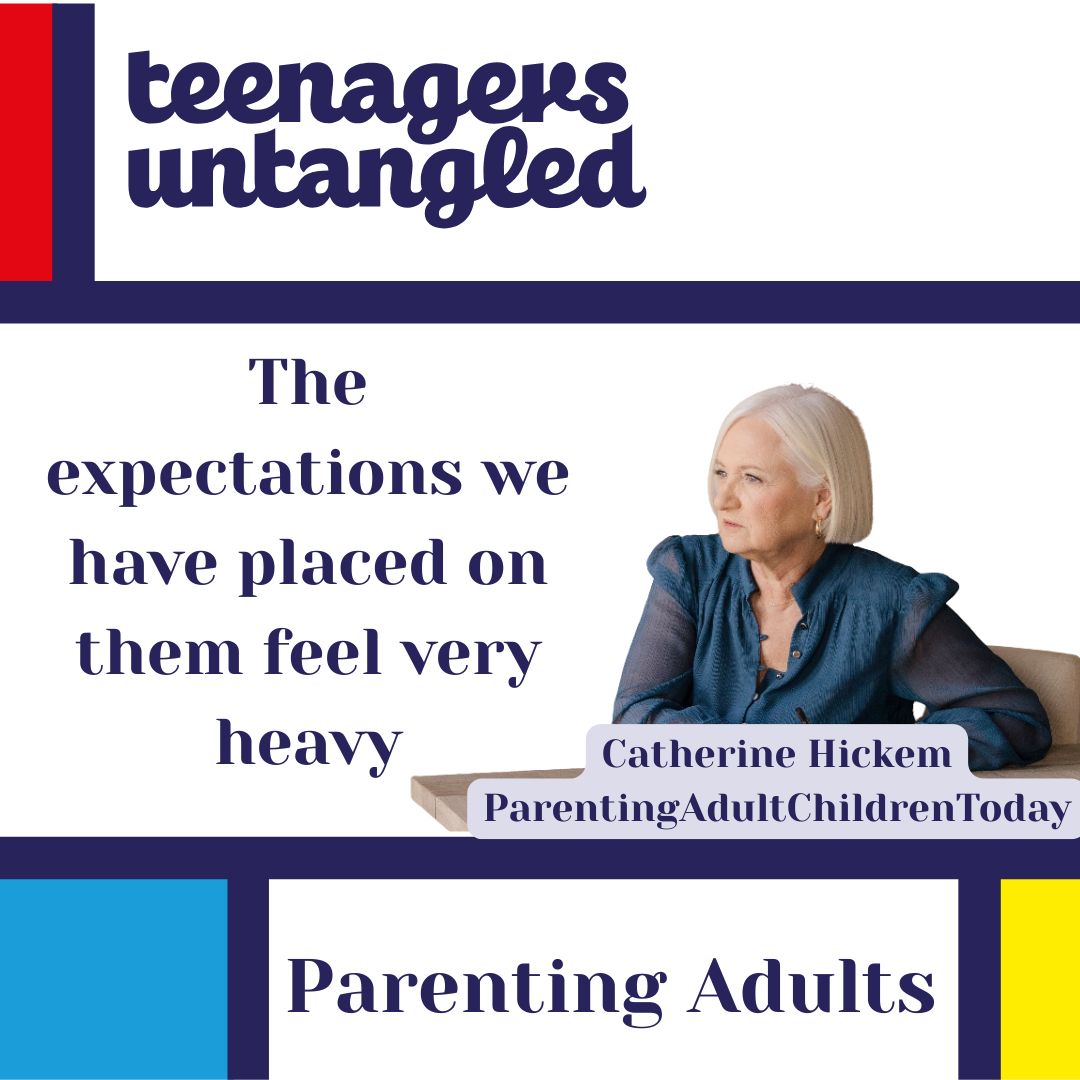Parenting lessons from adults who go no contact

How to create a relationship with our kids that flourishes rather than dies
Nobody has a child and thinks, I can’t wait until the day they will no longer talk to me. Whilst it’s not a goal for any of us, there are things we might inadvertently do that can set up a dynamic which results in exactly that outcome.
Given that my teens are now beginning to move into an adult stage of life, I’ve been thinking a lot more about what I might be doing that will help, or hinder, a close relationship in the future, because the pain of estrangement would be devastating and I know that for those to which it happens, it often feels like it comes out of nowhere.
I’m going to be totally honest here. There have been times when my bonus daughters flagged up pre-estrangement with their father. One of them stopped talking with him, and they started calling him by his first name. My bio kids have both tried to call me Rachel in the past, being playful, and my response was ‘Don’t ever call me Rachel. Everyone in the world gets to call me that, but you get to call me mummy, and that’s a mark of the very special bond we have.’
To me, their chose to call their dad by his first name came from a place of pain. It always deserves full attention. We’ve navigated these choppy waters by being open to feedback, I’ve negotiated between the two sides, and both sides have become more open and honest about their expectations and what’s possible. As I write, we have found a space where we all have a beautiful, close, but flawed relationship; because no relationship is perfect.
I fundamentally believe that it is our job as parents, no matter what the age of the child, to set the tone of the relationship and reach out to our kids. What our kids want, regardless of their age or status, is our unconditional love and approval. It really is as simple as that. It’s our job to get to know our child enough to be able to understand the choices they make, and support them in any way possible, not judge them.
Catherine Hickem, a licensed clinical social worker and founder of Parenting Adult Children Today, has worked with thousands of families facing this very issue. She says, “Estrangement rarely comes out of nowhere—most parents have been told what’s wrong, but they weren’t really listening.”
So what are the warning signs that we’re going off track?
A child who stops sharing, who seems distant, or who avoids family conversations. The root cause is a breakdown in trust, communication, and respect.
Catherine’s tips on the biggest mistakes parents make:
Giving Unsolicited Advice
“We’re too opinionated. We give opinions without being asked, and we shouldn’t,” says Catherine. She’s so right. It’s so easy to think, ‘Oh, I know what needs to happen here.’ It’s often coming from a place of either love and a desire to give them our wisdom, or discomfort and the need to stop them making us feel bad. When we jump in with solutions, we undermine our teen’s confidence and send the message that we don’t trust them to figure things out.
What to do: Practice curiosity and listening—really listening—without judgment or interruption.
Projecting Our Own Expectations
From the moment our children are born, we start dreaming about who they’ll become. Some of this comes from our own unmet aspirations, some of it from fear that if they don’t attain pre-set goals their life will be a failure. But those dreams can become an enormous burden. One of my listeners told me something that has stuck with me ever since. ‘Sometimes, to truly love the child you have, you have to grieve the child you thought you’d have—and let go of your own unmet needs.”
What to do: Ask yourself, am I supporting my child’s unique path, or trying to steer them toward my own unfulfilled ambitions?
Reacting Emotionally to Their Mistakes
I had an email from a lovely lady on LinkedIn who told me she is seeing this problem all the time. Parents getting overly emotional and involved in their child’s issues. Catherin says, “We have to be at our best when our children are at their worst—otherwise, they’ll focus on managing our emotions instead of learning from their mistakes.”
What to do: If your teen messes up, stay calm. Let them process the consequences of their actions, rather than making your reaction the main event. The episode on how not to overreact can be very helpful with this, but if you’re really struggling with your emotions why not seek help or therapy? Sometimes it’s the greatest gift we can give our children.
Withholding Unconditional Love
According the Catherine, “Unconditional love means standing by your child, even when their choices don’t align with your dreams or your community’s expectations.” Your child needs to know that your love isn’t dependent on their achievements, choices, or lifestyle.
I cannot stress enough how important this is. Every single person I have interviewed has said exactly the same thing. If we can’t give our own children our unconditional love, they are going to go searching for it somewhere else, and we may not like where they look for it. Unconditional love is one of the best ways to predator proof our kids.
What to do: Make it clear: you’re in their corner, no matter what. This doesn’t mean giving into every desire, having no boundaries, or accepting poor treatment. The mantra is ‘I love you wholeheartedly, no matter what, AND I don’t like that behaviour/that’s why I won’t allow you to do that/when you treat me like that it hurts me so let’s talk about it.
What our teens really need from us:
Even as they grow older, your children crave your approval and support. Says Catherine, “Our children don’t stop needing our love and approval just because they become adults. At 40, they still want to know their parents are proud of them.”
Show up for your teen—listen, ask questions, and let them know you’re proud of who they are, not just what they do.
5 Practical Tips to Future-Proof Your Relationship
Be Curious, Not Critical: Ask open-ended questions and show genuine interest in your teen’s world.
Apologize When You’re Wrong: If you make a mistake, own it. Offer a sincere apology and ask for a “do-over.”
Let Them Lead: Wait for your teen to invite your advice, rather than offering it unasked.
Manage Your Own Emotions: Don’t make your child responsible for your happiness or disappointment.
Celebrate Their Uniqueness: Support their interests, even if they’re different from your own.
Parenting tweens and teens isn’t easy, but the work we do now lays the foundation for a lifelong relationship. They hear everything we say under our roof. They can tell what we really think, and will hide things from us rather than risk disapproval because it’s so important to a child to be loved by their parent.
By listening, letting go of expectations, being less judgemental generally, and loving unconditionally, you can protect yourself—and your child—from the pain of estrangement later on.
Remember: it’s never too late to be a great parent. Start today.



